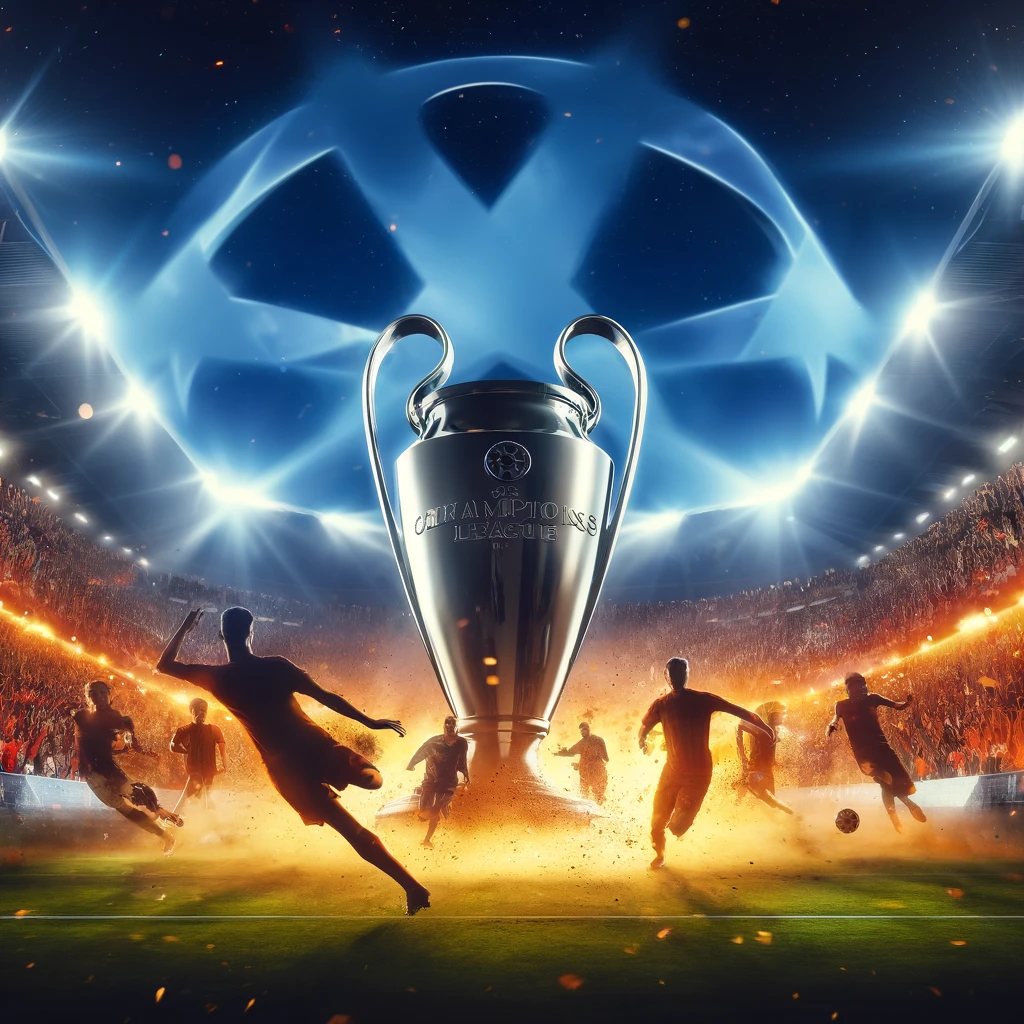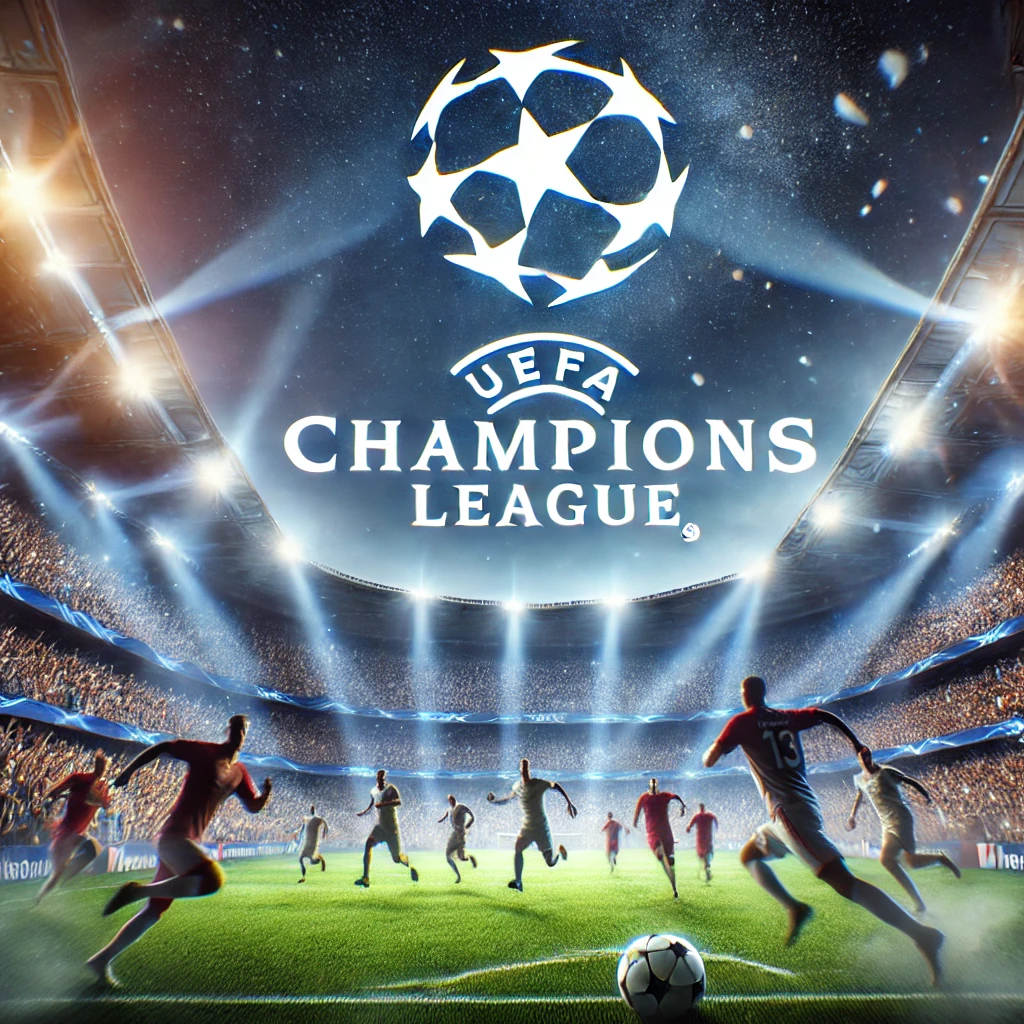The UEFA Champions League (UCL) is arguably the most prestigious and highly anticipated football competition in the world. Organized by the Union of European Football Associations (UEFA), it is an annual tournament that features the best football clubs from across Europe, battling it out for the ultimate title of being crowned the champions of Europe. From its illustrious history to its star-studded lineups and moments of high drama, the Champions League has provided football fans with countless memories.
In this article, we will delve into the history, format, famous moments, and impact of the UEFA Champions League on football and culture. We will also take a closer look at some of the greatest clubs and players who have left their mark on this iconic competition.

A Brief History of the UEFA Champions League
The UEFA Champions League, originally known as the European Cup, was established in 1955. It was conceived by French sports journalist Gabriel Hanot, who envisioned a competition that would allow the best clubs in Europe to compete against each other. The inaugural season featured 16 teams, and Real Madrid emerged as the first winners, setting the stage for their dominance in the competition during its early years.
Initially, the tournament was a knockout competition, with each round consisting of two-legged ties where teams would play home and away. Over the years, the format evolved, and in 1992, the competition was rebranded as the UEFA Champions League. The rebranding brought significant changes, including the introduction of a group stage, which provided more matches and increased commercial and television revenues. The tournament has since grown in popularity and is now considered the pinnacle of club football.
The Format of the Champions League
The current format of the UEFA Champions League includes a series of qualifying rounds, a group stage, and knockout rounds leading to the final. Here’s a breakdown of the competition structure:
- Qualifying Rounds: Teams that do not automatically qualify for the group stage through their domestic league standings must go through the qualifying rounds. These rounds are split into two phases: the preliminary rounds and the playoff round. The number of teams and the rounds they must compete in depend on the ranking of their domestic league in UEFA’s coefficients.
- Group Stage: A total of 32 teams are divided into eight groups of four teams. Each team plays the other teams in its group twice, once at home and once away. The top two teams from each group advance to the knockout stage, while the third-place team drops down to the UEFA Europa League.
- Knockout Rounds: The knockout rounds consist of the Round of 16, quarterfinals, semifinals, and the final. Each round, except for the final, is played over two legs, with the aggregate score deciding which team advances. If the aggregate score is tied after the two legs, the match goes into extra time and, if necessary, penalties.
- Final: The Champions League final is a one-off match played at a neutral venue. It is one of the most watched sporting events globally, attracting millions of viewers. The winning team is crowned the champion of Europe and secures a spot in the following year’s Champions League group stage, as well as a place in the UEFA Super Cup and the FIFA Club World Cup.
Iconic Moments in Champions League History
The Champions League has given fans some of the most memorable moments in football history. From stunning comebacks to last-minute goals, here are a few of the most iconic moments:
- The Miracle of Istanbul (2005): One of the most famous Champions League finals took place in 2005 when Liverpool faced AC Milan in Istanbul. At halftime, Milan was leading 3-0, and many believed the match was over. However, Liverpool staged an incredible comeback in the second half, scoring three goals to level the match. The game went to penalties, and Liverpool won 3-2 to claim their fifth European title.
- Manchester United’s Dramatic 1999 Final: The 1999 final between Manchester United and Bayern Munich is another classic. Bayern led 1-0 until the 90th minute, but United scored two goals in injury time through Teddy Sheringham and Ole Gunnar Solskjær to win 2-1, completing a historic treble for the club.
- Barcelona’s 6-1 Comeback Against PSG (2017): In the 2016-17 season, Barcelona faced Paris Saint-Germain (PSG) in the Round of 16. After losing the first leg 4-0, Barcelona needed a miracle to advance. In the second leg, Barcelona won 6-1 at Camp Nou, with Sergi Roberto scoring the decisive goal in the dying minutes to complete one of the greatest comebacks in football history.
- Real Madrid’s Dominance (2016-2018): Real Madrid made history by winning three consecutive Champions League titles under coach Zinedine Zidane, a feat that had not been achieved in the modern era. They defeated Atletico Madrid in 2016, Juventus in 2017, and Liverpool in 2018, cementing their status as the kings of Europe.

The Greatest Clubs in Champions League History
Several clubs have dominated the Champions League over the years, and their names are forever etched in the history of the competition. Here are a few of the greatest clubs:
- Real Madrid: Real Madrid is synonymous with the Champions League. The Spanish giants have won the competition a record 14 times, with their first triumph coming in 1956 and their most recent victory in 2022. Their dominance in the early years of the European Cup and their recent success under Zidane has made them the most successful club in the competition’s history.
- AC Milan: AC Milan is one of the most successful Italian clubs in Champions League history, having won the competition seven times. Their victories include memorable finals in 1989, 1994, and 2007. Milan has produced legendary players like Paolo Maldini, Franco Baresi, and Andriy Shevchenko, who have all left a lasting legacy in the competition.
- Liverpool: Liverpool has a rich history in European football, with six Champions League titles to their name. Their famous comeback in 2005 and their victory in 2019 under Jurgen Klopp are two of the highlights in the club’s European journey.
- Bayern Munich: The German giants have won the Champions League six times, with their most recent triumph coming in 2020. Known for their consistent performances in Europe, Bayern Munich has been a dominant force, and their treble-winning campaign in 2013 under coach Jupp Heynckes is one of the most impressive feats in football history.
- Barcelona: Barcelona has won the Champions League five times, with their victories in 2006, 2009, 2011, and 2015 standing out as part of their golden era under coaches like Frank Rijkaard and Pep Guardiola. Players like Lionel Messi, Xavi, and Andres Iniesta were instrumental in their success, making Barcelona one of the most iconic clubs in the competition.
The Players Who Defined the Champions League
The Champions League has been graced by some of the greatest players to ever play the game. Here are a few players who have left an indelible mark on the competition:
- Cristiano Ronaldo: Ronaldo is the all-time leading goal scorer in the history of the Champions League, with over 130 goals. He has won the competition five times—four with Real Madrid and once with Manchester United. Known for his ability to perform in the biggest moments, Ronaldo’s influence on the competition is unparalleled.
- Lionel Messi: Messi is a four-time Champions League winner with Barcelona. His incredible dribbling, vision, and goal-scoring ability have made him one of the most feared players in Europe. Messi’s performances in the competition have included unforgettable moments, such as his goal against Manchester United in the 2009 final and his brace against Bayern Munich in 2015.
- Paolo Maldini: Maldini is one of the greatest defenders in the history of football and a Champions League legend. He won the competition five times with AC Milan and played in eight finals, a record for an outfield player. His longevity, leadership, and defensive prowess made him a cornerstone of Milan’s success in Europe.
- Zinedine Zidane: Zidane, both as a player and a coach, has had a profound impact on the Champions League. As a player, he won the competition with Real Madrid in 2002, scoring one of the greatest goals in the history of the final. As a coach, Zidane led Madrid to three consecutive Champions League titles between 2016 and 2018, solidifying his legacy as one of the best in the competition’s history.
- Raúl González: Raúl is another Real Madrid legend who made a lasting impact on the Champions League. He was the all-time leading scorer in the competition before being surpassed by Ronaldo and Messi. Raúl’s ability to score crucial goals and lead by example made him a fan favorite at Madrid.
The Impact of the Champions League
The UEFA Champions League has had a profound impact not only on football but also on the broader cultural landscape. It has become a global spectacle, with fans from all over the world tuning in to watch the drama unfold. The competition’s global reach has contributed to the growth of football’s popularity in regions like Asia, Africa, and the Americas.
The Champions League has also had a significant financial impact on clubs. The commercial revenue generated by the competition, through broadcasting rights, sponsorship deals, and prize money, has transformed the fortunes of many clubs. For clubs that qualify for the group stage and beyond, the financial rewards are substantial, and success in the Champions League can elevate a club’s status both on and off the pitch.
Additionally, the competition has become a platform for players to showcase their talent on the biggest stage. A strong performance in the Champions League can propel a player’s career and attract the attention of top clubs and national teams.
Conclusion
The UEFA Champions League is more than just a football tournament; it is a celebration of the beautiful game. With its rich history, dramatic moments, and star-studded teams, it continues to captivate audiences around the world. As clubs and players strive to etch their names in the history books, the competition remains the ultimate test of skill, strategy, and mental toughness.
Whether you’re a die-hard football fan or a casual observer, the Champions League has something to offer for everyone. The future of the competition looks bright, and with each passing season, new heroes will emerge, adding to the legacy of one of the most prestigious events in the world of sports.

Leave a Reply